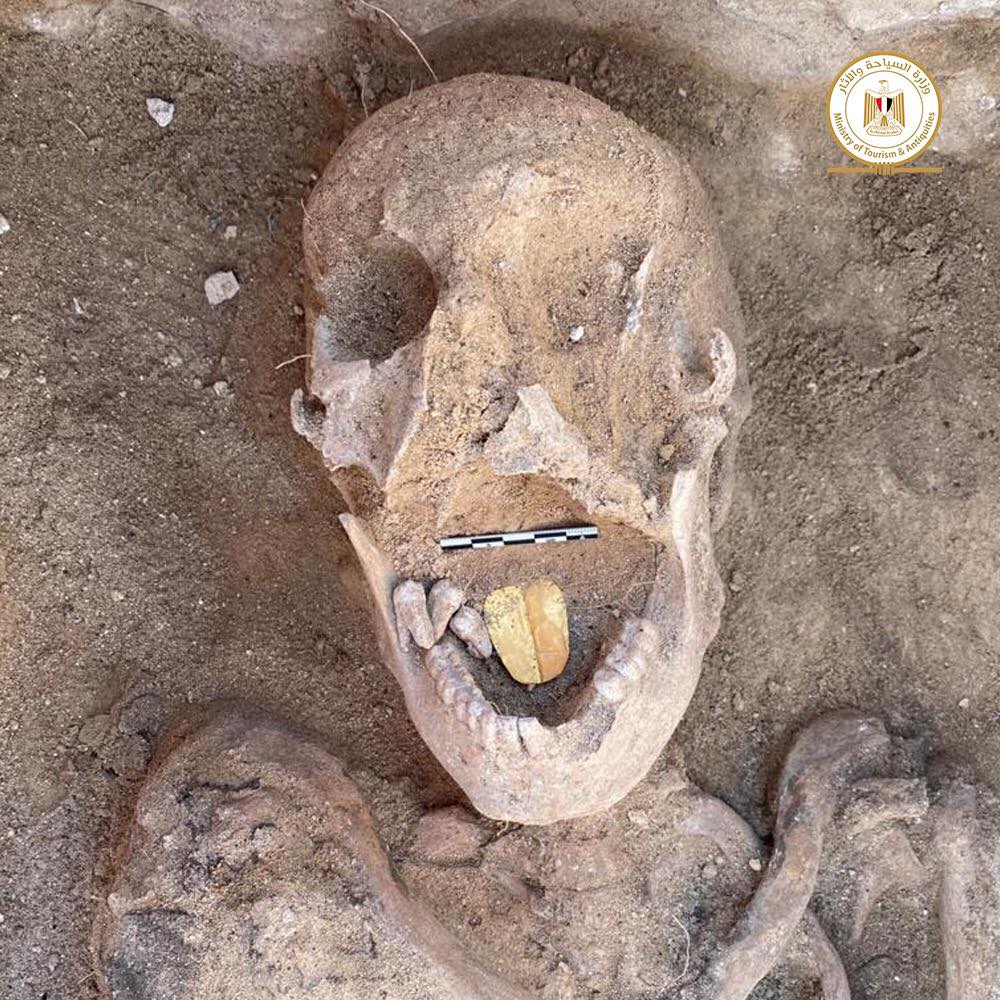Archaeologists Have Unearthed 2,000-Year-Old Mummies With Gold Tongues at an Ancient Temple in Egypt
The archaeologist who made the discovery is also searching for Cleopatra’s tomb at the same site.
Brian Boucher, February 3, 2021 ARTWORLD

Ancient Egyptians often buried their dead with objects that might help them in their journey to the afterlife, such as food, wine, and jewelry.
Now, archaeologists have found a group of 2,000-year-old mummies with gold-foil tongues at Taposiris Magna, in western Alexandria. The gilding of the organ was meant to allow the dead to speak before the court of the god Osiris, the lord of the underworld and the judge of the dead. Taposiris Magna, or “great tomb of Osiris,” was a city established in the third century B.C. by Pharoah Ptolemy II Philadelphus.
The Egyptian Ministry of Tourism and Antiquities announced the discovery in a Facebook post.
Led by Kathleen Martinez of the University of Santo Domingo, the team discovered 16 burials in the rock-cut tombs that were popular during the Greek and Roman eras. Osiris himself appears in gilded decorations on the material that encases one of the mummies. Another wears a crown decorated with horns and a cobra at the forehead. The dig also yielded the remains of scrolls.
Martinez is perhaps best known for her dogged search for the site of the burial of Cleopatra, which she believes is at Taposiris Magna, though archaeologists have typically sought the tomb closer to the center of Alexandria, 30 miles away. She has been busy at the site for some two decades.
Over the past 10 years, the ministry has made numerous discoveries at Taposiris Magna, including a number of coins bearing the name and image of Queen Cleopatra VII within the temple walls. It also uncovered parts of numerous statues, and evidence of a temple built by King Ptolemy IV.
While tourism has traditionally been a key sector of Egypt’s economy, the industry has been hit hard by the pandemic, and years of unrest since the Arab Spring of 2011.
SHARE
